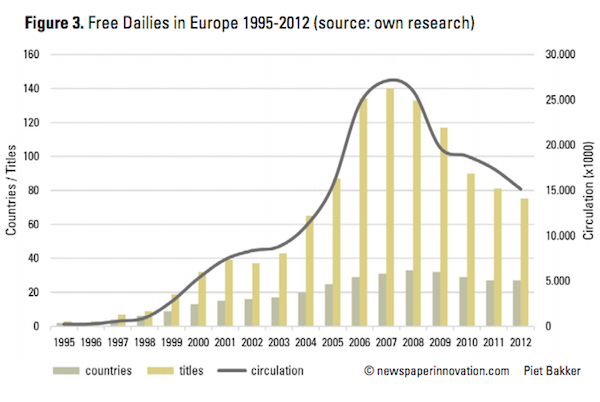That’s the summary of a new paper by Piet Bakker, probably the world’s top analyst of free newspapers. (PDF here.) Remember how, a few years ago, some thought that Metro and others of its free ilk would sweep into the space paid dailies were leaving behind? It didn’t work out exactly that way.
The abstract:
Free newspapers may offer different news contents to different audiences, when compared with traditional, paid-for newspapers, but they, nevertheless, concentrate on news, and thereby provide society with information on current affairs.
These papers have seen circulation rise until 2008; after that, a decline set in, leading to closures and often a monopoly situation in the mature European newspaper markets covered in our research. Free newspapers seem to follow a typical life cycle pattern, moving from growth to maturity, and to saturation and decline. Diversification strategies — home-delivery, weekend, sports, afternoon, and financial — have been disappointing so far.
There is no evidence, however, of total extinction, indicating that there is room for at least one title — possibly two — in every market. The situation in the surveyed markets also suggests that a free newspaper may be a ‘natural’ monopoly.
There are a lot of charts with shapes that look like variations on this one:

His conclusion:
There is a place for this business model for news and journalism, although it will probably not be the dominant model, and the place for the model seems rather small.
The paper’s published in the Danish academic journal Journalistica; you can download the issue free here, but note that all but one of the articles are in Danish, Swedish, or Norwegian.
Leave a comment